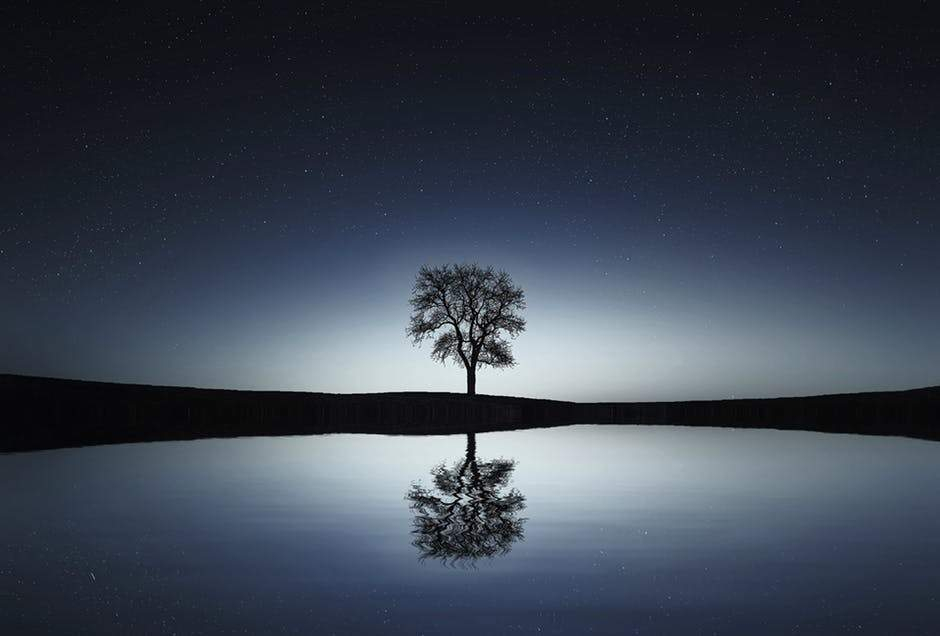Post-Ramadan Reflections: How Fasting Becomes A Means To Spiritual Ascension
Faith
|
Jun 18, 2018
|
4 MIN READ


I don’t have a healthy relationship with food. I am happiest when I am really hungry and about to eat, or after I have the first bite. After I eat, I don’t usually feel very well, for both psychological and physical reasons. Eating usually makes me feel sluggish or guilty – or both. I’m a really fast eater, and I don’t chew my food very well. I have bad eating habits – I either eat too little or too much. Throughout the year, I will fluctuate between gaining and losing 10-17 pounds. The actual food I eat is relatively healthy with few exceptions (excessive amounts of caffeine, indomie ramen, sour straws). My Ramadan eating habits are the healthiest: I am conscious and careful about my intake of water, protein, and vegetables, and everything else is automatically minimized.
The scholars and spiritual masters of the Islamic tradition have a lot to say about how fasting helps lessen the grip your appetite has on you – and it is through this weakening of appetite that fasting can become a means to your spiritual ascension. By now, food has either become significantly less or more important to you. You may have gotten used to the Ramadan eating schedule, and you may have settled into a routine that your soul and body are happiest with. You also may not have.
Here's the thing: if for over 12 consecutive hours every day for thirty days you weren’t dedicating any time to thinking about or eating or preparing or waiting for food, you freed up so much mental and emotional space in your brain. When God tells us that Ramadan is for the attainment of piety and we think, practically, where that should come in – it's in these hours where we are free to do anything, except the very things that we are evolutionarily programmed to. In other words, it is in these fasting hours when we are supposed to find a means of spiritual ascension beyond the limits of a physical body.

This is what gluttony stops you from doing. In a way that is similar to lust, gluttony is what happens when your body and its immediate and uncurbed desires come first – and continue to come first for an extended period of time. It is more likely that most of us aren’t actually gluttonous, but on any given day, for many of us, we don’t have the time or emotional space to just meditate or focus on our acts of worship. Ramadan, like our daily prayers, is supposed to force us out of execution mode and into a self-reflective and contemplative one. It is difficult to reflect and consider our choices and our daily MOs without a break in that schedule – and because we pray every day, sometimes we need something that creates an even more dramatic shift in our schedules to be forced into that state of contemplation. That something dramatic is Ramadan, when the very cosmos are changed by God so that the greater shayateen (devils) are locked up, eating and drinking and sleeping with our spouses (otherwise acts of worship) during the day is prohibited, and every good deed is considered by God to be even more pleasing.
You've no doubt heard the phrase, “you are what you eat.” But what if you're not eating? Or listening to anything besides Quran and lectures? Or watching television? What's left when your intake of everything but what is explicitly good for you is drastically minimized? What is left when you are so out of your routine and know it's a waste of time to do anything besides serve God or His creation?

Ramadan is something like the experience Dorian Grey has when he sees his self-portrait at the end of the novel – he knows it's been getting uglier, that his soul is off rotting even if no one can tell. The whole year I can justify to myself doing things just for fun, or for the experience, or for any number of reasons, and I can eat or watch or listen my feelings and ugly thoughts away. In Ramadan, however, I don't have the same option. I can't do that in good conscious. It was meant to force me to go up to the attic, take a long, hard look at myself and the person I have become, and fix it.
That's what we shouldn't lose sight of now that Ramadan is over. Who are you? Who can you become if you are not controlled by your desires?
This post was written by R.K. Almajali – one caffeine-obsessed book hoarder who dreams of opening up a literary cafe where people can pay at least half their bill in flowers and art. She (almost consistently) writes about women, relationships, language, grief, and how the personal is always political. She can be reached at r.k.almajali@gmail.com
Love this post? Don't be selfish - share it with your friends, and let us know how you've improved yourself during Ramadan!
Subscribe to be the first to know about new product releases, styling ideas and more.
What products are you interested in?

